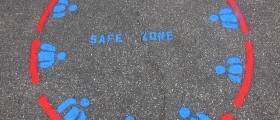I have this exact same thing, its like you want to say something but it doesn't register right in your head.
Loading...
I totally relate to what has been written so far in this discussion. I am living in an English speaking country but English is not my mother language. Before moving I used to have extremely good communication skills. I even participated in public speaking competitions, gave conferences and taught classes at graduate level (some of that in English). Right now it has been two years since I move and when I talk (and sometimes when I write) I feel like my IQ is half of what used to be. I even have problems to articulate my thoughts in my mother language. I really can't say if this is because of a chemical imbalance, depression, lack of confidence, cultural shock or stress. I can think of arguments to dismiss any of these as the root cause. Maybe it is something related to how the brain is structured. We learn to speak based on sounds, and then learn to interpret the reality based on words. Perhaps when moving to a place where the language and culture is different the brain needs to rewire many connections and the process is really painful. I hope it is a temporary phase and eventually be able to excel at communicating in English as good as I used to communicate in my native language.
Loading...
Loading...
Loading...
Loading...
Have you got any help?
Loading...
Loading...
For the past few years of adolescence till now i have been experience the similar symptoms as stated by you guys
a) Days when i feel "high" and king of the world while inevitably facing days where i feel so low and inferior to others.
b) On the "low" days, i cannot keep a conversation going and just go through brain fog for that whole day while when im "high" words just pop out effortlessly.
c) I find it so hard to concentrate in school and find self studying much more beneficial.
d) I am very forgetful
e) On my low days i feel like ill be going through the day aimlessly with my brain fog
Its like im two different people sometimes. One day i feel like the best person i can be and the next, i feel like this person who cannot do anything right. Recently i have begin to exercise and meditate every morning which has helped my mental state a bit but i still don't feel it being "normal". I used to be a sociable guy who gets friends effortlessly when i was 13-15 but now i find no motivation to make friends and am alone most of the time now. I think it is cyclothymia (a type of bipolar disorder) but im not sure myself. I spend so much of time online researching on this but to no avail. If anyone finds the problem and cause of this please share your knowledge. Thanks
Loading...
Loading...
I am going through everything that you've been through. Living like this is very depressing. A lot of people think that am dumb because I am unable to hold a conversation. A lot of people look down on me because of it. There are some rays of sunlight where I feel like myself again but the feeling only lasts for a couple of days. All I want is my life back so I can go out into the world and leave a legacy
Loading...
Brian, My name is Tyler you explained what I have been trying to word for 2 years now. What did you do about this. I'm trying to be myself again. If you could even reach me at ***this post is edited by moderator *** *** posting of private information such as name, phone number or email address is not allowed in order to protect your privacy*** Please read our Terms of Use
Loading...
Loading...
Hi, you guys are describing classic symptoms of the 'freeze' state of 'fight / flight / freeze'. There are a broad range of states within 'freeze'. Having the voice go into a monotone, losing prosody, losing volume, not being able to articulate yourself, think clearly, move or function are text book freeze. In it's worst state, people can't move or speak. Many people also have 'functional freeze' where they are more able to function but slightly numbed out. The nervous system generally cycles through states so you won't always be here in what is a branch of the parasympathetic nervous system (although some people live here most of the time) - at times there will be more sympathetic arousal, and at times more social engagement / ventral vagal expression in the nervous system.
Please look into polyvgal theory for a fuller explanation.
As for what to do - freeze is a response of the nervous system when a situation is overwhelming and we cannot 'fight' or 'flee'. This can happen during the womb if the mother goes through trauma; it can happen during birth; it can happen in any number of ruptures of safe attentive care care during infancy, childhood and onwards. Trauma does not necessarily mean a 'big traumatic event' - it means something that is overwhelming for your capacity at that moment, and which leaves a lasting imprint in your nervous system. Trauma is far more common than most people realise and most people are carrying a lot with various coping mechanisms at work. It bubbles up as anxiety, worry, panic, and - as you're finding - the parasympathetic realm of 'freeze / flop'.
This gets very unhelpfully labellled as 'laziness' or we think we're terrible procrastinators etc.
The nervous system needs help to come out of freeze, which is actually an extreme state of arousal *above* the highest peaks of sympathetic arousal.
As freeze melts, the underlying sympathetic arousal feelings of anger / fight response may be felt - but this is actually progress so please don't judge it or you'll send yourself back up into freeze. People can cycle around like this forever if they judge themselves for having anger and irritability arise.
The obvious question is what can you do / who can you go to.
I'm sorry the therapist you saw didn't recognise what's going on. Not everyone is polyvagal and trauma-informed; polyvagal theory is relatively new.
You will find much about it on Youtube.
Freeze is like the system 'buffering'; like a computer with way too many processes happening. 'How can I reduce intensity in my system' becomes the inquiry. All sorts of things can help - we all have different pressures on us.
Environmentally, people are often drawn to things like noise cancelling headphones, dark modes on computers, blue light filters, sunglasses - these all reduce environmental intensity.
Your system needs to be able to catch up with itself, and re-orient into the present moment. Trauma = disorientation.
Personally I think the best therapy for this is Organic Intelligence. It has a deep understanding of freeze and very little will be expected of you if you're in that state. It will take time. It can be done online. Many offer a sliding scale if you need / ask. It will be a journey, by no means a quick fix.
If therapy isn't an option then when you're in the right space, get curious about how you can take the pressure off yourself and reduce intensity on your nervous system / body / mind / senses. This will include not worrying about freeze :). Within freeze there is also a capacity to relax and go into 'rest and restore' mode which is deeply healing. 'Allowing' whats happening rather than judging and fighting it is key here.
When freeze isn't up, do what you can to improve your sense of orientation to the moment.... in a light, easeful way. Spend time in nature as much as that's pleasurable for you. Check out the Organic Intelligence channel on Youtube for a simple 'SUP' exercise for orientation. You're aiming to recultivate the body's natural facility of mapping itself in your environment moment to moment, which trauma disrupts.
Some people also find Deb Dana's work helpful, and doing exercises to tone the vagus nerve. Just be aware that when you're in 'freeze' mode you're unlikely to be able to 'do' and trying to 'do' will put more pressure into an already over-threshold system - the 'doing' can be gently done when freeze isn't around, to help re-shape your system.
Wishing you really well with this.
Loading...

















